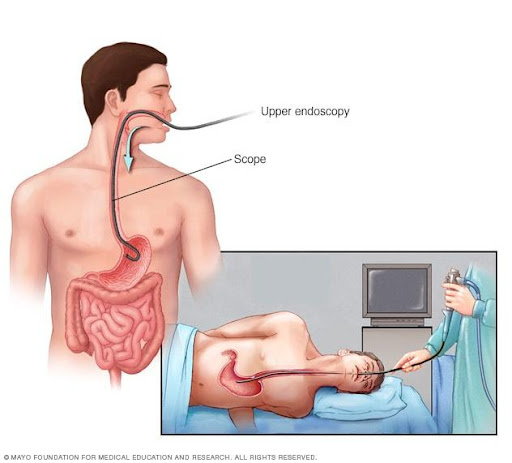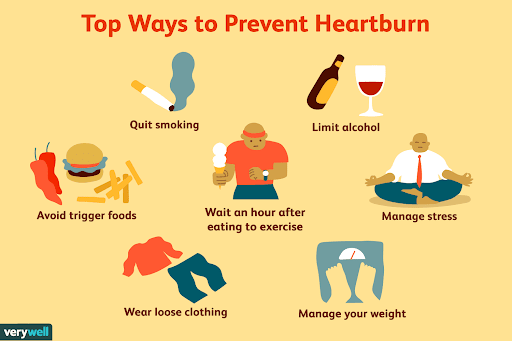
Relying on “churan” or “risek” for abdominal pain and heartburn? It is high time you learn what is the actual culprit behind these two and how can you end this inconvenience for good.
The following blog contains a detailed account of what indigestion is, what are its symptoms and treatment options, and what are the lifestyle changes you can make to prevent this inconvenience from happening again and again. The blog will also educate you about the foods which cause indigestion so that you can avoid them for good.
What is Indigestion?
There are many terms used for indigestion including dyspepsia or upset stomach. The condition indicates discomfort in the upper stomach, and satiety just by eating a bite or two. Different individuals may experience different symptoms as it is influenced by other medical conditions as well as medications.
Digestion is carried out using various acids and enzymes which are present and released in various parts of the digestive system. These acids and enzymes have the chemicals which breakdowns proteins and fatty acids thus the digestive tract itself has to be protected from them. For this purpose, there is a protective layer present on the insides called the mucosa. When excessive stomach acid comes in contact with the mucosa, it breaks the lining causing inflammation and irritation which causes abdominal pain and heartburn. In a majority of cases, the irritation is a result of increased sensitivity of the mucosa rather than inflammation.
It is important to clarify another concept here heartburn has nothing to do with your heart. The heart and the upper end of the stomach are present very close to each other which is why acid reflux in the upper end of the stomach during indigestion is perceived as heartburn.

What causes indigestion?
The main triggers of indigestion include your diet, medication, and medical history. Unhealthy eating habits like not taking time to chew and eating very greasy or spicy foods also cause indigestion or dyspepsia. Increased intake of alcohol, caffeine, and carbonated beverages along with smoking can worsen the symptoms of indigestion. Pregnant females are too more likely to develop indigestion owing to the changing hormones and the strain growing babies put on their stomachs.
Unfortunately, mental health problems and people with anxiety and stress can also develop indigestion. Other disorders and diseases that roots indigestion include irritable bowel syndrome, gastritis, non-ulcer dyspepsia, stomach cancer, diabetes, thyroid problems, peptic ulcer, gallstones, intestinal blockage, pancreatitis, celiac disease, constipation, and intestinal ischemia.
What are the common symptoms of indigestion?
The main symptoms of indigestion include;
- Feeling of fullness in a few bites: People with indigestion feel full at the start of their meals which makes them unable to finish it.
- Heaviness after meals: Indigestion problems make individuals feel uncomfortably full for a long time after consuming a meal.
- Heartburn: It is one of the key symptoms. The acid reflux from the stomach makes people feel an uncomfortable burning sensation in the center of the chest which extends toward the back of the neck.
- Bloating and discomfort in the upper abdomen: Individuals with the problem of ingestion may feel mild to severe discomfort along with tightness and bloating in the upper abdomen, particularly between the bottom of the breastbone and the belly button.
- Nausea: Indigestion may also cause nausea, vomiting, and belching.
Ways to diagnose indigestion
The symptoms of indigestion should not be ignored especially in adults aged above 55. It is because it could be representing some other underlying issues. To diagnose indigestion, your healthcare provider is going to take your health history along with your physical exam. Try being precise about the location of discomfort in your abdomen to help your doctor make an accurate diagnosis. A physical exam is enough to diagnose mild indigestion. However, if a patient is experiencing repeated vomiting and weight loss, other interventions are required, especially for individuals aged above 55.
- Lab tests help to determine anemia and metabolic disorders which cause indigestion.
- To check the presence of the peptic ulcer-causing bacteria called Helicobacter pylori (H. pylori), stool and breath tests are conducted.
- To look for intestinal obstruction or other problems, your healthcare provider may recommend you an X-ray or CT scan.
- Another test called endoscopy is used to check abnormalities of the upper digestive tract using a small camera. During that procedure, small tissue samples may also be drawn for further analysis.

Foods that cause indigestion
Spicy and high-in-fat food tends to change the pH of the stomach. These foods tend to relax the esophageal sphincter and delay digestion. Common indigestion-causing foods include fried items, fast food, processed snacks, cheese, processed meat like sausages and pepperoni, chili powder and flakes, and chocolates. Other seemingly healthy food items including citrus fruits, peppermint, and tomato-based sauces can also exacerbate the symptoms of indigestion and dyspepsia and thus should be avoided.
Treatment options available for indigestion
There are three major ways in which indigestion is treated. The most effective but prolonged way of treatment is making lifestyle changes. Other options include taking antibiotics and psychological therapies.
Lifestyle changes for indigestion:
By making changes in what you eat, when you eat, and how you eat, you can treat indigestion. Some useful changes include;
- Paying attention to chewing and taking your time
- Avoiding late-night snacking
- Maintaining healthy weight
- Avoiding exercise after meals
- Minimizing and managing stress
- Not laying down in the next three hours of meal consumption
- Quitting smoking
- Avoiding nonsteroidal anti-inflammatory drugs
- Dividing three large meals into six smaller ones
- Knowing and avoiding indigestion-causing food items
- Reducing alcohol and caffeine intake
- Replacing indigestion-causing medications, especially aspirin, and ibuprofen.

Medication for indigestion
To treat indigestion, antacids are generally used as they reduce the amount of acid in the stomach. Other medication which helps includes;
- H-2-receptor blockers
- Proton pump inhibitors (PPIs)
- Prokinetics
- Antidepressants or antianxiety medicine
- Antibiotics
Psychological therapy
Indigestion can be an outcome of stress. This is why psychological therapy can help. A form of therapy called “talk therapy” is used on such patients to help to treat their depression and anxiety. Such doctors also recommend meditation, exercise, and counseling to help the patients reduce stress. Improved stress levels lower the strain on the digestive system and thus improves indigestion.
Some lifestyle changes that you can adopt to prevent indigestion
Individuals who have a family history of indigestion or previously had this problem should take preventive measures to avoid reoccurrence. Since all the above-mentioned food items cannot be completely avoided so should at least be consumed in moderation. It is important not to consume these foods in the evening as it puts more strain on the digestive system. People with the problem of indigestion must avoid sleeping or laying down immediately after eating to prevent acid reflux.
For long termed management of the symptoms of indigestion, consult the best gastroenterologist of Pakistan using Sehat Kahani mobile application.




